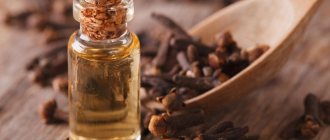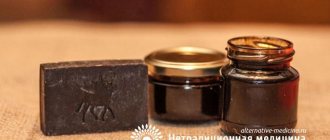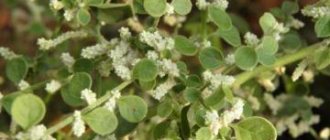L-lysine: beneficial properties, side effects
Did you know that protein can help cope with many ailments, from herpes to cancer? And L-lysine is simply irreplaceable in its formation.
L-Lysine is used to treat the herpes virus and recovery from exercise. However, this acid has many more beneficial properties.
L-Lysine may be useful in many ways, including treating anxiety and diabetes. This amino acid is found in foods and can also be purchased as a dietary supplement.
general characteristics
Lysine is an amino acid that is part of all proteins in the human body. And despite the fact that it is a key element necessary for the normal functioning of the body, the body is not able to provide itself with lysine, so it is important to take care of the quality of your diet.
The year of “birth” of the amino acid lysine is considered to be 1889. It was then that lysine was isolated from casein, and in 1955, lysine hydrochloride was produced in the USA. At this time, in the States they tried to create a special type of bread - saturated with lysine, which they planned to sell among people whose diet was far from balanced. But this idea did not find support. Since the 1970s, lysine has been used as an additive in animal feed, and bodybuilders use it to promote rapid muscle growth.
Content:
- general characteristics
- Beneficial features
- Effect on the body
- Amino acid digestibility
- Daily norm
- Warning
- Consequences of shortage
- Why is excess dangerous?
- Lysine-rich foods
Research[edit | edit code]
Translation from English and adaptation of the text: Andrey Zavyalov
Research results
According to an article published by nutritionists at the St. John's Research Institute of India in the Journal of Clinical Nutrition, supplementing with the amino acid lysine increases muscle strength.
The researchers set out to determine how important lysine is for muscle growth, conducting an eight-week study with forty men. Half of them ate moderately, their lysine intake was 40 mg per kg of body weight. The other half of the subjects received enhanced nutrition and consumed 55 mg of lysine per kg of body weight. The researchers added lysine to the diets of half the men in each group, bringing their daily intake to about 80 mg per kg of body weight. For an 80kg man this would be about 6g of lysine per day.
results
Over the eight weeks of the experiment, the muscle volume of the subjects did not increase as a result of taking lysine supplements, but the muscle strength of the heavily eating men increased by 7.5%. The researchers used a wrist dynamometer to measure muscle strength.
The increase in strength in men eating moderately was not statistically significant. The researchers were unable to determine how lysine supplementation affected muscle strength gains, but in any case did not find a significant effect on muscle growth or insulin metabolism.
Beneficial features
Lysine plays an important role in the body - when combined with vitamins, it strengthens the immune system, maintaining health. It is not difficult to provide yourself with this amino acid - it is found in many products of different categories. But improper cooking (heat treatment for too long) can significantly reduce, and sometimes even completely “destroy” everything useful from the product.
Like many other amino acids, lysine is often used to build muscle and accumulate collagen, which is an important component of cartilage, connective tissue, and skin. Do you want to build muscle? It is worth thinking about consuming sufficient portions of lysine. In addition, the amino acid promotes the absorption of calcium from the intestines, which subsequently facilitates the production of hormones, enzymes and antibodies, and also stimulates the production of creatine (necessary for converting fats into energy). The amino acid also has a calming effect, which makes it effective in combating depression, stress and anxiety.
Lysine is used to prevent and treat various infections. The substance has shown its effectiveness in the treatment and prevention of stomatitis. According to some data, it is effective for sore throats and migraines. Important for diabetics because regular consumption of the amino acid can lower blood sugar levels.
Effect on the body
- Cholesterol.
In liver tissue, lysine is converted into carnitine, which helps the body get rid of excess fat. And as studies have shown, regular consumption of lysine leads to a decrease in the level of “bad” cholesterol.
- Bones.
We all know that calcium is critical to bone health. Lysine helps the body absorb this beneficial element and slows down its elimination, which helps strengthen bone tissue. With age, skeletal bone density decreases, which means the need for lysine increases. This amino acid is especially useful for people with osteoporosis.
- Herpes.
In alternative medicine, lysine is actively used to treat viral herpes, providing an antiviral effect and blocking its activity. There is an opinion that a diet rich in lysine can prevent relapses of herpes, and if the virus has already “come out”, then the rash heals faster and less painfully. Meanwhile, in official medicine the amino acid is not used as a medicine against the virus.
- Height.
Being the main component of proteins, the amino acid ensures the proper development of the body and promotes growth in children. Lack of lysine can cause growth arrest.
- Stress, anxiety.
A diet composed of lysine-containing products protects the body from the effects of nervous disorders, reduces anxiety, and has a positive effect on a person’s emotional state.
- Anesthesia.
It is believed that lysine has anti-inflammatory and analgesic properties. While scientists cannot guarantee this 100%, as research continues. But the first results have already been recorded.
- Heart.
Lysine may relieve angina, especially when combined with vitamin C.
Amino acid digestibility
Lysine exists in two “versions”: L and D. The human body can handle only L-lysine. But for complete absorption, the amino acid must be consumed in combination with vitamins A, B1, as well as iron and bioflavonoids. When choosing foods rich in lysine, do not forget about this rule.
Secondly, lysine can “work” in the body only in the presence of another amino acid – arginine. By the way, ideal products that combine both substances are different types of cheeses and fermented milk products. In other cases, you can come up with food combinations with the obligatory presence of nuts, chocolate, and gelatin. These foods are excellent sources of arginine.
Dosage
It is always better to get all nutrients from food rather than from supplements. In this case, your body receives more substances without the risk of overdose.
However, dietary supplements can be very useful in cases where you cannot get the recommended amount of a particular substance from food.
The average person (weighing about 70 kg) should get between 800 and 3,000 mg of L-lysine every day.
For herpes, its amount in the form of a dietary supplement should be 1-3 grams daily. Lysine is also available in the form of a cream that is applied directly to the herpes affected area.
Daily norm
A safe daily dose of lysine is considered to be a dosage of 1 to 3 g.
But usually the norm is determined individually, based on age, as well as health status. To treat herpes, for example, you will need a dose slightly higher than the generally accepted daily recommendation. For people suffering from cardiac disorders, the amount of necessary amino acid is determined individually.
In addition, there are nuances when the daily lysine intake needs to be increased. This usually applies to people on a low-fat diet or a diet low in fat.
The second category is older people. Elderly men have a special need for additional doses of lysine.
The third group whose menu should include more protein foods is vegetarians. This is explained by the fact that proteins from animal and plant foods are absorbed at different rates.
And the fourth category of people who should also not neglect lysine are athletes and people exposed to heavy physical activity. Otherwise, they will have to face troubles such as tendon inflammation and muscle wasting.
The use of lysine in sports
The benefit of lysine in bodybuilding is that the amino acid helps to recover faster after training. It has a corrective effect on the nitrogen balance. It remains positive, which is necessary for building muscle tissue and increasing muscle volume.
Thus, the use of lysine for athletes is necessary to protect and nourish muscles. Additionally, the amino acid helps strengthen the tendon corset and skeletal system. This helps reduce the likelihood of sports injury.
Lysine can be obtained from several foods:
- legumes,
- fish,
- eggs,
- cheeses,
- nuts,
- yeast.
Consequences of shortage
Lysine deficiency is extremely rare. A deficiency of the substance may result in symptoms resembling the common flu. In addition, nausea, vomiting, fatigue, dizziness, and the formation of kidney stones are possible. Female infertility can also be caused by lysine deficiency. A severe form of deficiency is manifested by hormonal imbalance, which affects the reproductive system and stunts growth in children. The consequences of a lack of the substance are considered to be anemia, a tendency to viral diseases, problems in the functioning of the male reproductive system, menstrual irregularities in women, hair loss, redness of the eyes (a vascular network appears on the membranes of the eyes).
At risk are people whose diet does not include fresh fruits and vegetables, dairy products and meat, and instead of them there is abuse of sweets, soda and improperly prepared food.
In addition, regular stress can cause the development of lysine deficiency, the consequences of which become increasingly difficult for the body to overcome. Nervous shocks contribute to a faster “use up” of lysine. If a stressful situation is repeated quite often over a short period of time, the body does not have time to replenish the reserves of the consumed amino acid. Subsequently, the body becomes defenseless against viral attacks.
Indications for use
Considering the effects of lysine, the list of indications for its use includes:
- weakened immune system;
- cardiovascular diseases;
- chronic fatigue;
- metabolic disorder;
- diseases of the organs of vision;
- viral infections;
- anxiety, neuroses and depression;
- protrusion and hernia of the spine.
We recommend checking out a few more supplements recommended for stress:
“What is 5-HTP needed for or how to increase the “happiness hormone.”
“GABA (Aminobutyric acid): why every person needs it.”
Why is excess dangerous?
Considering that lysine does not have the ability to accumulate in body tissues, it would seem that there is no need to talk about the dangers of an overdose. Moreover, many experts are inclined to think that this amino acid is not capable of causing harm to humans. And even if excess appears in the body, it will only be beneficial - it will serve as an additional source of strength.
Meanwhile, there is another way of looking at the problem. More theoretical than practical. But still... Some researchers believe that nausea, diarrhea, and abdominal cramps may indicate that too much of an amino acid called lysine has accumulated in the body. In addition, an excess of the substance, in their opinion, can provoke the formation of gallstones and an increase in triglycerides. It is believed that taking pharmaceutical lysine in high doses over a long period of time can increase cholesterol levels.
Harm from taking
If a person takes a lysine supplement and does not follow the instructions, it can lead to side effects such as diarrhea and abdominal pain. But the amino acid found in food is not capable of causing these side effects.
People suffering from kidney or liver diseases, as well as nursing women and pregnant women, should take lysine with caution.
Before you start taking amino acids, you must consult a specialist.
You can buy L-Lysine from the Badrazves company, pick it up or order delivery.










